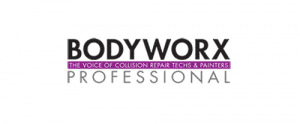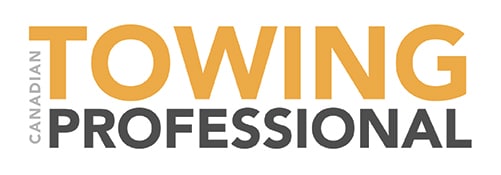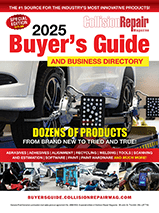CLEVELAND–(BUSINESS WIRE)–Cleveland-Cliffs Inc. (NYSE: CLF) announced today that it has closed its previously priced offering of $750 million aggregate principal amount of senior unsecured guaranteed notes due 2030 (the “Notes”), which were priced at 6.75% annual coupon and issued at par.
The Company intends to use the net proceeds from the Notes to repay a portion of the borrowings under its existing asset-based revolving credit facility. The transaction is leverage neutral and interest expense neutral.
About Cleveland-Cliffs Inc.
Cleveland-Cliffs is the largest flat-rolled steel producer in North America. Founded in 1847 as a mine operator, Cliffs also is the largest manufacturer of iron ore pellets in North America. The Company is vertically integrated from mined raw materials, direct reduced iron, and ferrous scrap to primary steelmaking and downstream finishing, stamping, tooling, and tubing. Cleveland-Cliffs is the largest supplier of steel to the automotive industry in North America and serves a diverse range of other markets due to its comprehensive offering of flat-rolled steel products. Headquartered in Cleveland, Ohio, Cleveland-Cliffs employs approximately 27,000 people across its operations in the United States and Canada.
Forward-Looking Statements
This release contains statements that constitute “forward-looking statements” within the meaning of the federal securities laws. All statements other than historical facts, including, without limitation, statements regarding our current expectations, estimates and projections about our industry or our businesses, are forward-looking statements. We caution investors that any forward-looking statements are subject to risks and uncertainties that may cause actual results and future trends to differ materially from those matters expressed in or implied by such forward-looking statements. Investors are cautioned not to place undue reliance on forward-looking statements. Among the risks and uncertainties that could cause actual results to differ from those described in forward-looking statements are the following: continued volatility of steel, iron ore and scrap metal market prices, which directly and indirectly impact the prices of the products that we sell to our customers; uncertainties associated with the highly competitive and cyclical steel industry and our reliance on the demand for steel from the automotive industry, which has been experiencing supply chain disruptions, such as the semiconductor shortage, and higher consumer interest rates, which could result in lower steel volumes being demanded; potential weaknesses and uncertainties in global economic conditions, excess global steelmaking capacity, oversupply of iron ore, prevalence of steel imports and reduced market demand, including as a result of inflationary pressures, the COVID-19 pandemic, conflicts or otherwise; severe financial hardship, bankruptcy, temporary or permanent shutdowns or operational challenges of one or more of our major customers, including customers in the automotive market, key suppliers or contractors, which, among other adverse effects, could disrupt our operations or lead to reduced demand for our products, increased difficulty collecting receivables, and customers and/or suppliers asserting force majeure or other reasons for not performing their contractual obligations to us; disruptions to our operations relating to an infectious disease outbreak or the COVID-19 pandemic, including workforce challenges and the risk that novel variants will prove resistant to existing vaccines or that new or continuing lockdowns in China will impact our ability to source certain critical supplies in a timely and predictable manner; risks related to U.S. government actions with respect to Section 232 of the Trade Expansion Act of 1962 (as amended by the Trade Act of 1974), the United States-Mexico-Canada Agreement and/or other trade agreements, tariffs, treaties or policies, as well as the uncertainty of obtaining and maintaining effective antidumping and countervailing duty orders to counteract the harmful effects of unfairly traded imports; impacts of existing and increasing governmental regulation, including potential environmental regulations relating to climate change and carbon emissions, and related costs and liabilities, including failure to receive or maintain required operating and environmental permits, approvals, modifications or other authorizations of, or from, any governmental or regulatory authority and costs related to implementing improvements to ensure compliance with regulatory changes, including potential financial assurance requirements, and reclamation and remediation obligations; potential impacts to the environment or exposure to hazardous substances resulting from our operations; our ability to maintain adequate liquidity, our level of indebtedness and the availability of capital could limit our financial flexibility and cash flow necessary to fund working capital, planned capital expenditures, acquisitions, and other general corporate purposes or ongoing needs of our business; our ability to reduce our indebtedness or return capital to shareholders within the currently expected timeframes or at all; adverse changes in credit ratings, interest rates, foreign currency rates and tax laws, including adverse impacts as a result of the Inflation Reduction Act of 2022; the outcome of, and costs incurred in connection with, lawsuits, claims, arbitrations or governmental proceedings relating to commercial and business disputes, antitrust claims, environmental matters, government investigations, occupational or personal injury claims, property damage, labor and employment matters, or suits involving legacy operations and other matters; uncertain availability or cost, due to inflation or otherwise, of critical manufacturing equipment and spare parts; supply chain disruptions or changes in the cost, quality or availability of energy sources, including electricity, natural gas and diesel fuel, or critical raw materials and supplies, including iron ore, industrial gases, graphite electrodes, scrap metal, chrome, zinc, coke and metallurgical coal; problems or disruptions associated with transporting products to our customers, moving manufacturing inputs or products internally among our facilities, or suppliers transporting raw materials to us; the risk that the cost or time to implement a strategic or sustaining capital project may prove to be greater than originally anticipated; uncertainties associated with natural or human-caused disasters, adverse weather conditions, unanticipated geological conditions, critical equipment failures, infectious disease outbreaks, tailings dam failures and other unexpected events; cybersecurity incidents relating to, disruptions in, or failures of, information technology systems that are managed by us or third parties that host or have access to our data or systems, including the loss, theft or corruption of sensitive or essential business or personal information and the inability to access or control systems; liabilities and costs arising in connection with any business decisions to temporarily or indefinitely idle or permanently close an operating facility or mine, which could adversely impact the carrying value of associated assets and give rise to impairment charges or closure and reclamation obligations, as well as uncertainties associated with restarting any previously idled operating facility or mine; our level of self-insurance and our ability to obtain sufficient third-party insurance to adequately cover potential adverse events and business risks; uncertainties associated with our ability to meet customers’ and suppliers’ decarbonization goals and reduce our greenhouse gas emissions in alignment with our own announced targets; challenges to maintaining our social license to operate with our stakeholders, including the impacts of our operations on local communities, reputational impacts of operating in a carbon-intensive industry that produces greenhouse gas emissions, and our ability to foster a consistent operational and safety track record; our actual economic mineral reserves or reductions in current mineral reserve estimates, and any title defect or loss of any lease, license, easement or other possessory interest for any mining property; our ability to maintain satisfactory labor relations with unions and employees; unanticipated or higher costs associated with pension and other post-employment benefit obligations resulting from changes in the value of plan assets or contribution increases required for unfunded obligations; uncertain availability or cost of skilled workers to fill critical operational positions and potential labor shortages caused by experienced employee attrition or otherwise, as well as our ability to attract, hire, develop and retain key personnel; the amount and timing of any repurchases of our common shares; and potential significant deficiencies or material weaknesses in our internal control over financial reporting.
For additional factors affecting the business of Cliffs, refer to Part I – Item 1A. Risk Factors of our Annual Report on Form 10-K for the year ended December 31, 2022, and other filings with the U.S. Securities and Exchange Commission.
Contacts
MEDIA CONTACT:
Patricia Persico
Senior Director, Corporate Communications
(216) 694-5316
INVESTOR CONTACT:
James Kerr
Manager, Investor Relations
(216) 694-7719




















